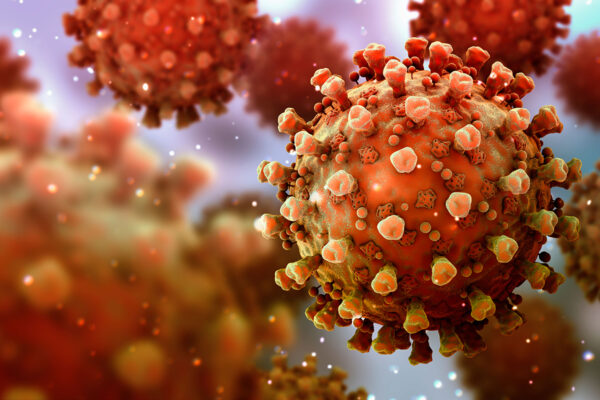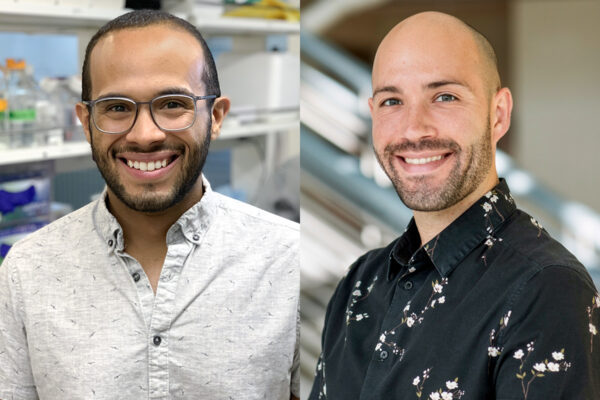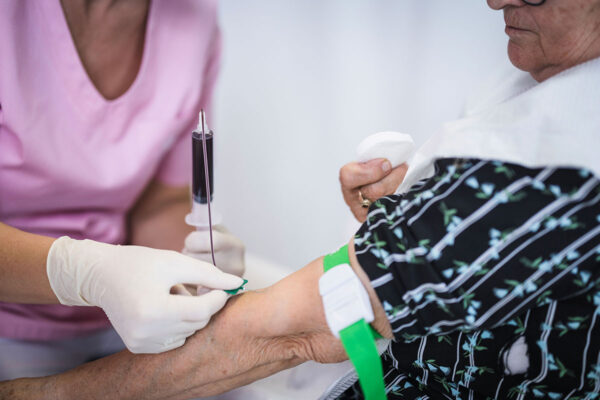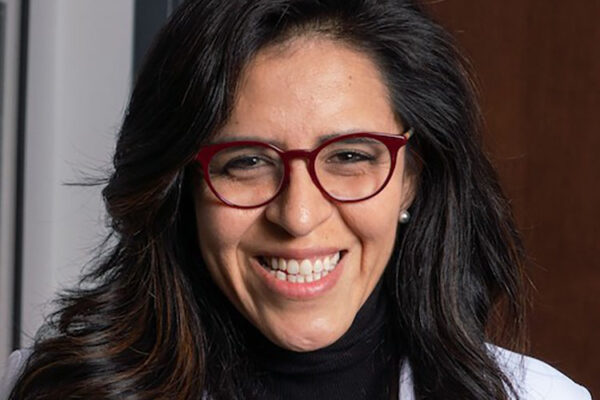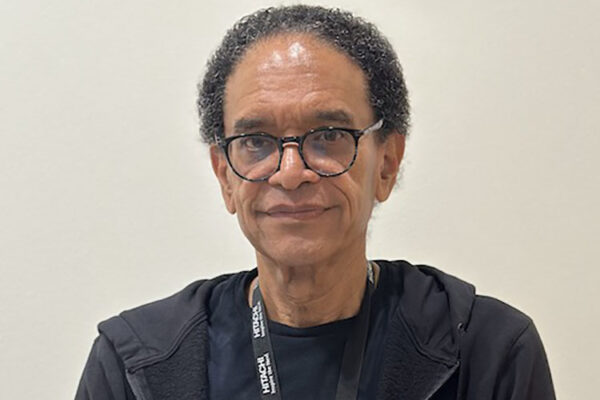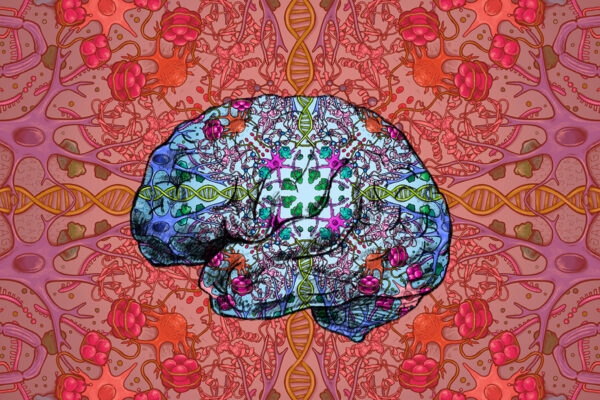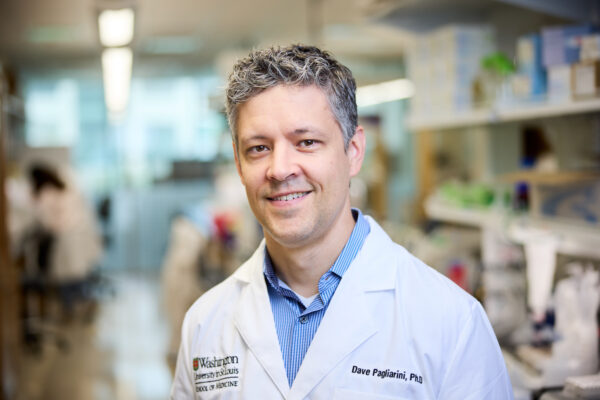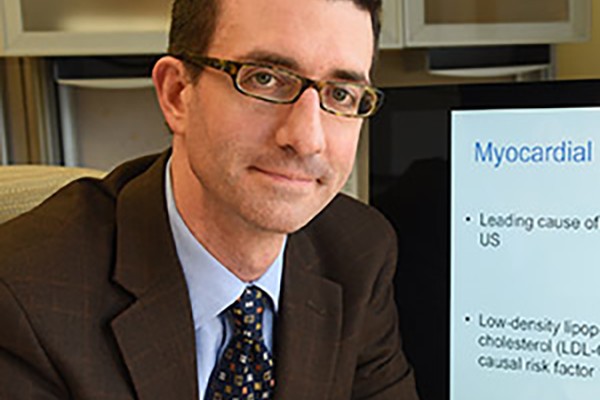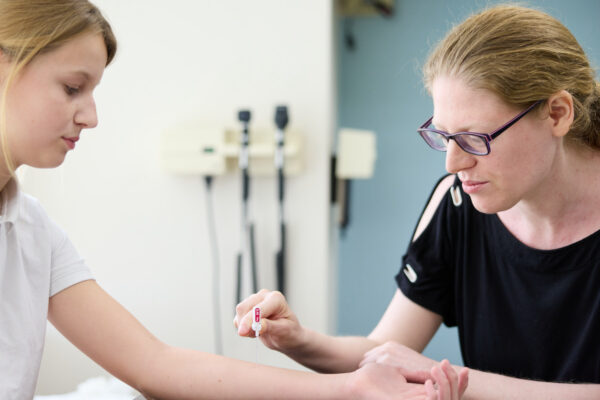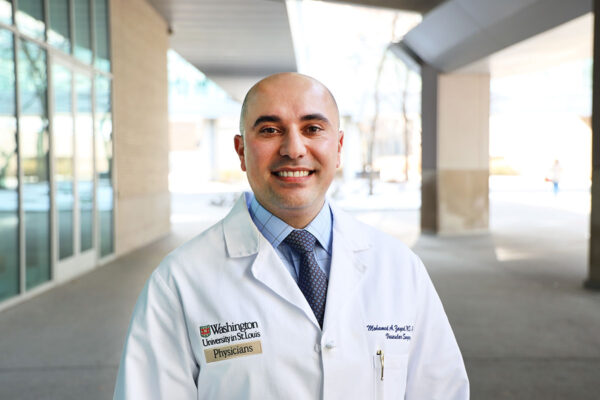Nasal COVID-19 vaccine halts transmission
A nasal COVID-19 vaccine blocks transmission of the virus, according to an animal study by researchers at Washington University School of Medicine in St. Louis. The findings suggest that vaccines delivered directly to the nose or mouth could play a critical role in containing the spread of respiratory infections.
García-Reyes, Castro named to Gilliam Fellows Program
The Howard Hughes Medical Institute (HHMI) has named Washington University in St. Louis doctoral candidate Rubén A. García-Reyes and his adviser, Daniel C. Castro, to the 2024 cohort of the Gilliam Fellows Program.
Accuracy of diagnostic blood tests for Alzheimer’s disease varies
A head-to-head comparison of six commercially available blood tests for Alzheimer’s disease led by researchers at Washington University School of Medicine in St. Louis reveals that two are accurate enough to replace brain scans and spinal taps in some patients with cognitive impairments.
Gomez-Lopez receives award to study pregnancy complications
Nardhy Gomez-Lopez, a professor of obstetrics and gynecology at Washington University School of Medicine in St. Louis, has received a four-year $500,000 award from the Burroughs Wellcome Fund to further research into the immunobiology of the maternal-fetal interface and identify biomarkers to predict preterm labor and birth.
Rosa-Molinar named director of cellular imaging center
Eduardo Rosa-Molinar has been named the new scientific director of the Washington University Center for Cellular Imaging and has joined the faculty of the Department of Cell Biology & Physiology and the Department of Neuroscience at the School of Medicine.
Study reveals how brain cancer evolves in response to treatment
School of Medicine researchers have shown how brain tumors evolve in response to therapy, helping describe how such cancers develop treatment resistance that leads to the high mortality rate characteristic of this cancer.
Pagliarini named HHMI Investigator
David Pagliarini, at Washington University School of Medicine in St. Louis, has been named a Howard Hughes Medical Institute Investigator. He will receive approximately $11 million in funding over seven years in support of research on mitochondria.
Stitziel honored by American Heart Association
Nathan O. Stitziel, MD, PhD, a professor of medicine and of genetics at Washington University School of Medicine in St. Louis, has received the American Heart Association’s Mid-Career Award in Genomic and Precision Medicine.
Can we predict who will develop migraine headaches?
Washington University School of Medicine scientist Hadas Nahman-Averbuch has received two grants totaling $6 million to investigate the risk factors for developing migraine headaches in adolescents.
Zayed to lead new Division of Surgical Sciences
Mohamed A. Zayed, MD, PhD, a vascular surgeon known for his pioneering research in vascular diseases, has been appointed director of the newly established Division of Surgical Sciences in the Department of Surgery at Washington University School of Medicine in St. Louis.
View More Stories
